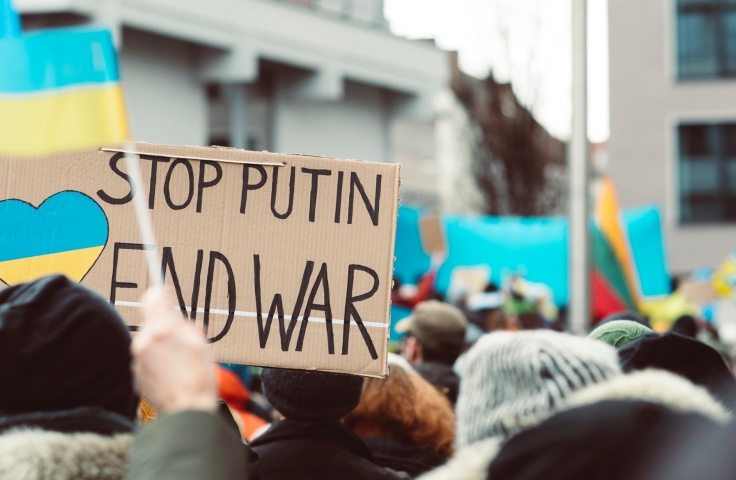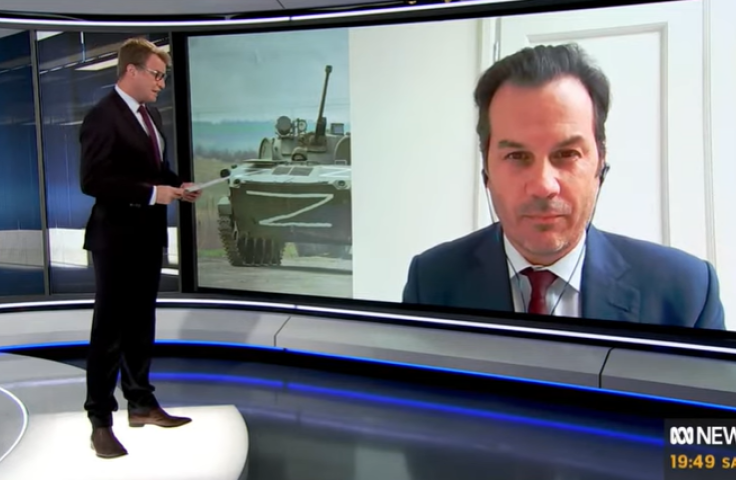Kayla Cook
What are sanctions?
A ‘sanction’ can include many things, but as Jeremy Farrall identifies, typically includes actions taken against a person or state who has ‘transgressed a legal norm’. Sanctions serve many purposes including punishment, deterrence and defining the parameters of permissible conduct. Sanctions are not solely imposed by military means, but can also be imposed by non-military conduct, physical restraints or intangible constraints. Intangible restraints, particularly economic sanctions, have featured prominently in the ongoing Russian invasion of Ukraine.
What sanctions have been imposed on Russia?
The UN Security Council has been unable to hold Russia to account for its aggression towards Ukraine. In February of this year, Russia vetoed a UN Security Council resolution which would have demanded Moscow cease its attack on Ukraine and withdraw all troops. Despite this bar to international action at the UN Security Council level, nation states have imposed their own economic sanctions on Russia.
The EU has imposed broad sanctions on Russia including individual restrictive measures (asset freezing), economic sanctions and media restrictions (on broadcasting of Russian news outlets).
The US sanctions have targeted Russia’s economy and GDP. These measures include full blocking sanctions of Russia’s largest banks and freezing Russian assets held in these banks from entering the US financial system. In April, President Biden signed an Executive Order prohibiting any investment in Russia by US persons wherever located. This Order is strategic and seeks to isolate Russia from the global economy. This action, in conjunction with the mass exodus of more than 600 multinational businesses from Russia, is intended to weaken Russia’s global competitiveness.
Australia has also imposed individual restrictions on 7,241 Russian individuals and entities. Australia’s sanctions include general prohibitions on importing and exporting specific goods (including arms materials and luxury goods), providing financial services (e.g. providing loans to sanctioned Russian banks) and dealing with certain Russian individuals and entities and/or their assets. Australia strictly enforces these sanctions domestically through significant penalties, for example, a corporation which contravenes a sanction faces a maximum fine of AU$2,220,000 or an amount three times the value of the transaction involved (whichever is greater). Individual offenders face fines of up to AU$555,000 and potential imprisonment for up to 10 years. In response, Russia’s foreign ministry has sanctioned 121 additional Australian citizens, ranging from journalists to defence officials.
Why sanctions?
Despite these severe economic and cultural sanctions, the Russian advance into Ukraine continues. Why then do nation states impose sanctions instead of pursuing military intervention? Sanctions have proved popular among the international community largely because, as Farrall opines, they represent the ‘least unpalatable’ option to resolving international disputes. Considering the alternative response to Russia’s conduct, namely, active military response, it is easy to understand why the international community would hope that less violent measures such as sanctions would be sufficient. However, as history has revealed, the effect of sanctions extends far beyond the offending nation’s elite and can last well beyond the eventual lifting of a sanction. Are sanctions then a double-edged sword?
Sanctions: A double-edged sword?
Attention to the historical use of sanctions provides an important critical perspective in considering the long-term effects of current sanctions. A useful illustration is the system of economic sanctions imposed on Yugoslavia in the 1990s. In 1992, the UN Security Council passed a resolution which banned all international trade with Yugoslavia. President George W Bush seized all US-based assets of the Yugoslavian government, worth $200 million. Subsequent measures included a blanket ban on shipments to and from Yugoslavia, a series of naval blockades and prohibitions on imports and exports exchanges.
These measures profoundly impacted the civilian population. In the short term, Yugoslavian people reported daily difficulties in locating basic food supplies (which led to the creation of an ‘embargo cake’) and gasoline (which resulted in heavy reliance on public transport). Inflation was so extraordinarily high that government computers were unable to calculate the inflationary rate. As one scholar notes, the economic hardships faced by Yugoslavian civilians was compounded by the widespread feeling of ‘humiliation and isolation from the rest of the world’.
Conclusion
Sanctions are an increasingly popular method of holding nations to account, as evidenced by current sanctions against Russia for its unlawful war in Ukraine. However, as the 1990 Yugoslavian sanctions reveal, the effects of sanctions are often felt most profoundly by the civilian population. As for the effectiveness of the sanctions imposed on Russia, early signs indicated they did nothing to slow the advance into Ukraine.
Kayla Cook was an intern with the Australian Journal of Human Rights in Term 2, 2022.

